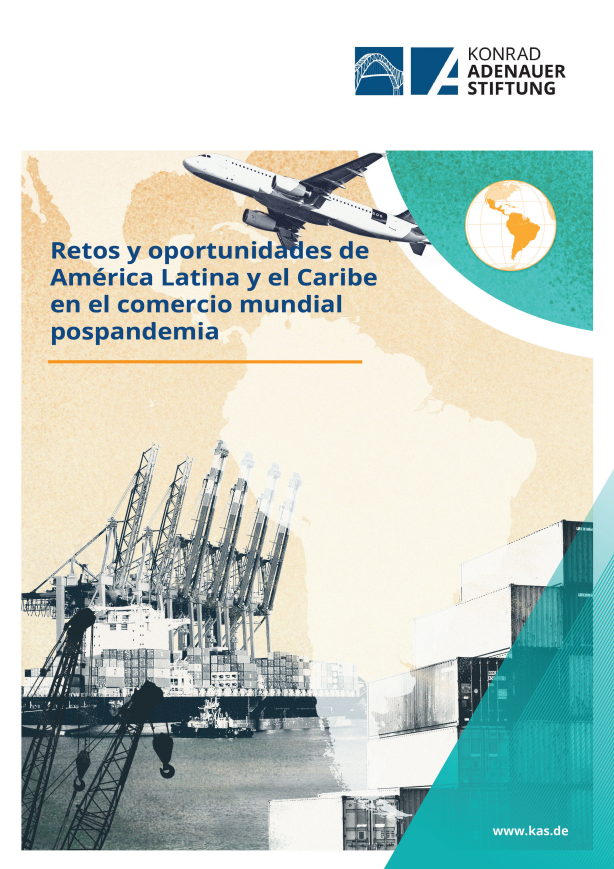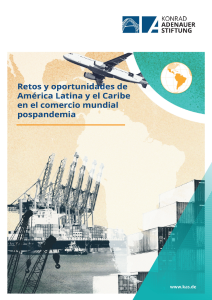The COVID-19 pandemic affected the global economy both directly and through the measures countries had to adopt to confront it. This resulted in the largest drop in the global economy since the 1930s (-3.2%) (IMF, 2021). The effect of the health crisis was particularly severe in Latin America and the Caribbean. The region faced complex situations related to its supply chain (both for food and medical supplies), economic resilience, social security, public health services, among others. As a consequence, during 2020, the region experienced the largest contraction of gross domestic product (GDP) globally, with a 6.8% decline (ECLAC, 2021a). However, it wasn't only the economic sphere that was hit by the COVID-19 pandemic: the crisis also affected the progress committed to in the 2030 Agenda, in its economic, social, and environmental dimensions. Despite comprising only 8% of the world's population, Latin America and the Caribbean accounted for 15% of deaths as a result of the COVID-19 pandemic.
Nevertheless, through various approaches, both from central governments and integration bodies, subnational governments, and civil society, paths were sought to contain these impacts. The strategies followed varied considerably, as did the outcomes, but by the end of 2021, the region had a high percentage of its population fully vaccinated, while COVID-19 deaths had decreased, macroeconomic policies were beginning to take effect, and cross-border trade of goods and people was undergoing a normalization process. International trade faced significant challenges due to the COVID-19 pandemic, but the recovery was swift, and the impact less profound than initially forecasted (Giordano and Michalczewsky, 2021). Trade proved to be more resilient than expected and, along with monetary and fiscal stimulus packages (especially from advanced economies), contributed to boosting global economic activity.
In Latin America and the Caribbean, goods exports were favored by the rise in commodity prices (ECLAC, 2021a), resulting in a strong 37% increase in their value by the end of 2021. For the year 2022, a further 20% increase in exports is projected (ECLAC, 2023). The services sector presents a different scenario since the region has an export pattern focused on tourism and transportation, the two sectors most affected by the pandemic. However, during the first half of 2021, the decline in the region's goods exports slowed down, although with uneven performance among sectors and countries.
The prospect of a rapid recovery in regional trade should not generate a false sense of security or stability. In fact, the post-pandemic crisis scenario presents significant challenges. These include the significant increase in the cost of maritime transport of goods, the crisis generated by container shortages, the impact caused by supply constraints in the microprocessor industry, and the significant limitations still facing sectors such as tourism. In addition, in 2022, the multiple negative impacts of Russia's invasion of Ukraine were added, especially concerning global supplies of food, fuels, and fertilizers. All this underscores the need to address the post-pandemic scenario with active public policies and a strong commitment to the economic, social, and environmental development outlined in the 2030 Agenda.
After the COVID-19 pandemic, the region must address the pending challenges related to its integration into international trade, which were sidelined due to the health crisis. The post-pandemic recovery presents an opportunity to propose public policies aimed at strengthening Latin America and the Caribbean's international integration and its contribution to regional development. The purpose of this book is to present some of the major themes that must be addressed, offering a summary of their evolution and current status, as well as certain projections and policy recommendations.
In the following paragraphs, this introduction provides the reader with an overview of trade in Latin America and the Caribbean before the COVID-19 pandemic. The focus is on both goods and services trade, analyzing the performance of the region's countries in intra- and extra-regional trade, as well as the scenario posed by the multilateral trade system. Subsequently, the themes addressed by the remaining ten chapters of the book are introduced.





